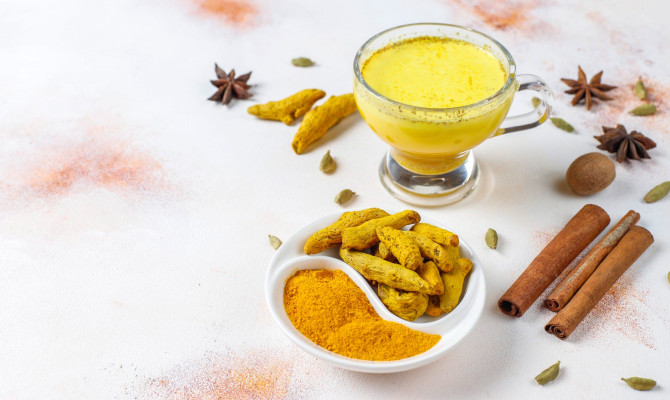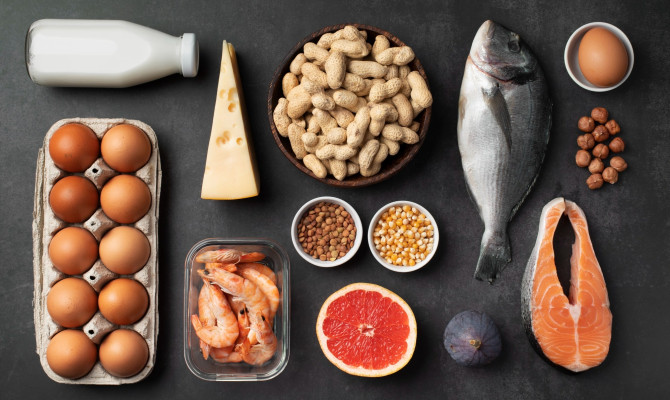Probiotics and its Health Benefits

- Probiotics
- 17 Aug 2023
Overview
What are Probiotics?
Probiotics, often known as live bacteria, are beneficial to human health when consumed in proper quantities. However, some yeast can also be categorized as probiotics but are typically bacteria.
The article aims to delve into the exciting world of probiotics by examining their varieties, definitions, and potential health advantages. This article seeks to satiate your need for information, whether you are a health-conscious person looking for strategies to improve your gut health or a curious mind ready to investigate the most recent advancements in the field.

Health Benefits

Health Benefits of Probiotics
- Good for digestion
- Maintains a healthy balance of gut bacteria
- Improves nutrient absorption
- Reduces bloating and gas
- Improves immune response
- Improves sexual health
- Good for urinary tract infections
- Improves heart health by lowering cholesterol
- Reduces the risk of urinary tract infections
Better digestion
- Probiotics are essential for ensuring an appropriate amount of good bacteria in the gut, which supports efficient digestion and nutritional absorption. They may help relieve digestive problems such as Irritable bowel syndrome (IBS), bloating, diarrhea, and constipation.
Restoring and maintaining gut microbiota balance
- By increasing the population of helpful bacteria and reducing the growth of harmful bacteria, they help maintain a healthy balance of bacteria in the gut. This balance is essential for digestion, vitamin absorption, and gut health.
Enhances nutrient uptake and digestion
- Probiotics assist in food digestion, aid in the breakdown of food, and enhance nutrient absorption. To make complex carbs, proteins, and lipids more easily digested and accessible, they create enzymes that help in their breakdown.
Improved intestinal barrier function
- They maintain a healthy immune system by strengthening the intestinal barriers, which act as a barrier in the gut and control inflammation. By boosting the function of immune cells including T cells and natural killer cells, they support a strong immune system.
Reducing the bloating and gas symptoms
- Promoting healthy digestion, decreasing the proliferation of bacteria that produce gas, and enhancing intestinal movement may help reduce excessive gas production and bloating.
Improves immunological response
- Certain strains have been demonstrated to strengthen the immune system, assisting in the defense against typical infections and lowering the intensity and length of respiratory and gastrointestinal diseases. They stimulate the generation of antibodies and boost immune cell function.9Health benefits| Researched based study from Nlm.nih.gov
The management of issues related to antibiotics
- Despite their effectiveness in treating bacterial infections, antibiotics can upset the average balance of gut microorganisms. They may help restore this equilibrium and lower the danger of antibiotic-associated diarrhea and other digestive issues brought about by antibiotic use.
Support for mental health
- The gut-brain axis is a complex network between the gut and the brain. Probiotics may affect emotional and mental health, according to recent studies.
- They have been linked to decreased signs of stress, depression, and anxiety. Certain neurotransmitters are produced by the gut flora, which also contributes to the interaction between the gut and the brain.8Health benefits| Researched based study from Nlm.nih.gov
Lactose digestion
- For those who have a lactose intolerance, lactose, the sugar found in dairy products, can be challenging to digest.
- The enzyme lactase, which breaks down lactose, is produced by some probiotic strains, and it can assist in enhancing lactose digestion and lessen its effects.
Sexual Health
- Probiotics, particularly Lactobacillus strains, may help preserve a balanced population of bacteria in the vagina.
- They promote the production of an acidic environment, which inhibits the growth of dangerous bacteria and lowers the risk of vaginal diseases like bacterial vaginosis and yeast infections.
A healthy urinary tract
- They may also promote the health of the urinary system. They prevent dangerous microorganisms from growing too much.
- They lessen the risk of infections and support a balanced gut microbiota by preventing the proliferation of pathogens in the urinary tract.
Potential health benefits for the heart
- They might improve cardiovascular health by lowering cholesterol and blood pressure. To determine the precise mechanisms and efficacy, more research is required.
Anti-allergy measures
- Exposing children and newborns to specific probiotics early in life may lower their risk of developing allergies, especially eczema. They support immune response modulation and allergen tolerance development1Health benefits| Researched based study from Nlm.nih.gov ,2Health benefits| Researched based study from Nlm.nih.gov ,3Health benefits| Researched based study from Nlm.nih.gov
Components
What does Probiotic consists of?
Bacteria
- Lactobacillus acidophilus: Known for its ability to produce lactase and support the digestion of lactose. Additionally, it helps to preserve an optimal intestinal flora.
- Lactobacillus rhamnosus: Supports healthy digestion and aids in immune system regulation. It has been researched for potential benefits in managing and preventing diarrhea.
- Intestinal Bifidobacterium: Encourages immune function and helps to keep a healthy gut microbiota.
- Longum Bifidobacterium: Helps regulate the immune system and digestion in the gut as a whole.
- Thermophilus Streptococcus: Contributes to the digestion of lactose and the improvement of intestinal health.
- Streptomyces boulardii: A helpful yeast strain with a reputation for promoting digestive health, especially in diarrhea, including diarrhea brought on by antibiotics and traveler’s diarrhea.
They come in various forms, including tablets, powders, capsules, and fermented food items. They may include one or more microbe strains, frequently mixed to produce synergistic effects.1Components| Researched based study from Nlm.nih.gov
Sources
Probiotic food sources
Yogurt
- One of the most popular probiotic foods is this one. Look for types like Bifidobacterium bifidum and Lactobacillus acidophilus that have live, active cultures. Kefir, Greek yoghurt, and other fermented dairy products also contain probiotics.
Veggie fermentation
- Pickles, kimchi, and other pickled vegetables are good sources. These conventionally fermented foods undergo a fermentation process that encourages the growth of healthy bacteria, such as Lactobacillus species.
Kombucha
- It is a fermented tea beverage with various probiotic strains, usually yeasts and bacteria like Lactobacillus and Saccharomyces boulardii. It is renowned for its fizz and acidic flavor.
Miso
- It is a typical Japanese seasoning made from fermented soybeans. It contains beneficial bacteria and is frequently used in soups, sauces, and marinades.
Tempeh
- It is an Indonesian product made from fermented soybeans. It is strong in probiotics and can be used as a meat substitute in a variety of dishes.
Kefir
- Though thinner in consistency than yogurt, it is a fermented milk beverage. It is created by combining milk fermentation with yeast and bacteria-rich kefir grains. It is well recognized to have a wide variety of strains.
Kvass
- It is a traditional fermented drink that is popular in Eastern Europe. It typically contains lactic acid bacteria and is produced from rye bread or beets.
Traditional buttermilk
- It is the liquid that remains after cream and butter have been separated. It goes through a fermentation process, promoting probiotic microorganisms’ development. It differs from the cultured buttermilk that is often created by adding cultures to milk and is available in supermarkets.4Sources| Researched based study from Nhs.uk ,5Sources| Researched based study from Nlm.nih.gov ,6Sources| Researched based study from Nlm.nih.gov
Contraindications
Who should refrain from taking Probiotics?
People with Lactose intolerance
- The bacteria are usually present, and most of the types used in supplements either don’t generate lactose or have very little of it. The inability to absorb lactose, a sugar present in dairy foods and milk, is known as lactose intolerance.
- People with lactose intolerance usually tolerate them well because lactose is not one of their main ingredients. To be sure the specific probiotic supplement is right for you, it’s always a good idea to read the product label or speak with a healthcare provider.7Contraindications| Researched based study from Nlm.nih.gov
One who avoids added sugar
- While certain probiotic products on the market might add sugars, many probiotic supplements are offered with none or very little sugar added. To find out if there are any added sugars in a product, it’s essential to read the label carefully.
Any feedback on this article?
 This Articles content was accurate
This Articles content was accurate Very Informative Article
Very Informative Article I have a question or a comment
I have a question or a comment
 This article contains inaccurate content
This article contains inaccurate content This article was not helpful
This article was not helpful I have a question or a comment
I have a question or a comment
We appreciate your helpful feedback!
Checkout our social pages
References
-
National Library of Medicine
Beneficial Properties of Probiotics | Benefits
-
National Library of Medicine
Health Benefits of Probiotics: A Review | Benefits
-
National Library of Medicine
Role of Probiotics in Human Health | Benefits
-
National Health Service
Good foods to help your digestion | Sources
-
National Library of Medicine
Probiotics - the versatile functional food ingredients | Sources
-
National Library of Medicine
Fermented Foods as Probiotics: A Review | Sources
-
National Library of Medicine
Effects of Prebiotic and Probiotic Supplementation on Lactase Deficiency and Lactose Intolerance: A Systematic Review of Controlled Trials | Contraindications
-
National Library of Medicine
Probiotics for Mental Health: A Review of Recent Clinical Trials | Benefits
-
National Library of Medicine
Probiotics and immune health | Benefits






































